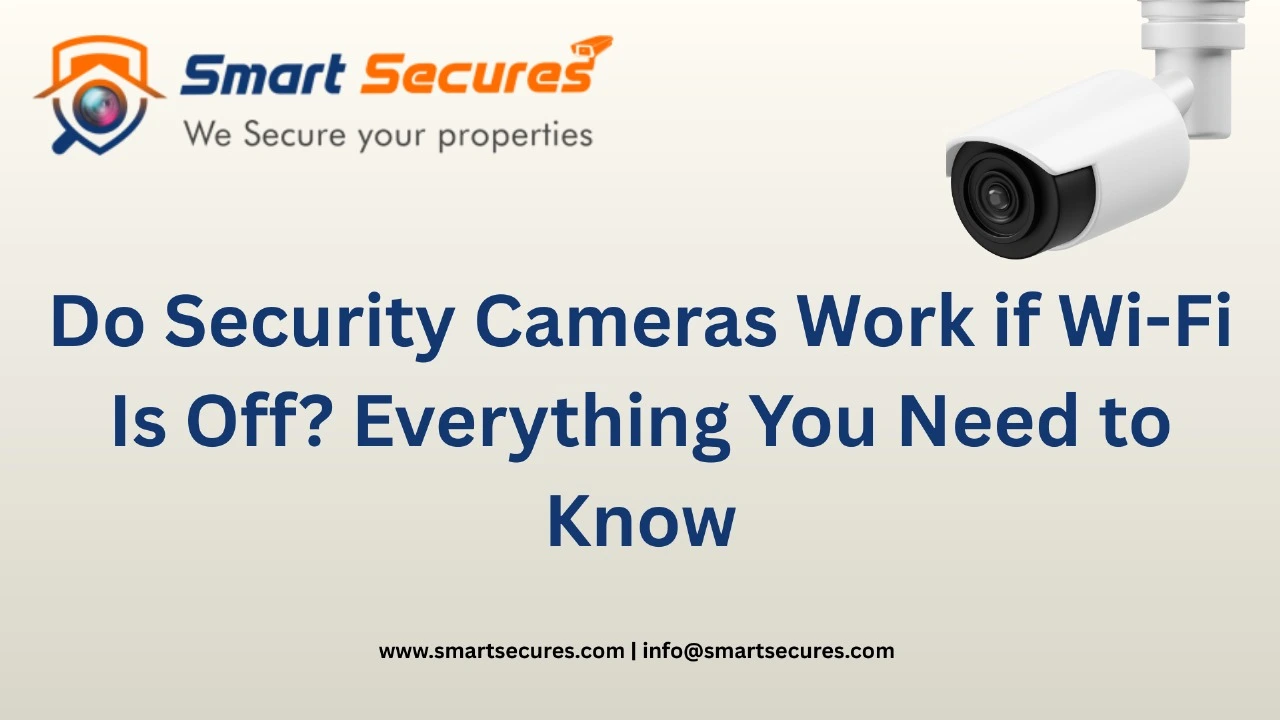Smart secures is the best security surveillance system Company in Hyderabad, India. We provide the best CCTV camera installation, We provide Access Control & Biometric, Intercom & EPABX, Video Door Phones & home automation.
Subscribe to:
Comments (Atom)
Do Security Cameras Work if Wi-Fi Is Off? Everything You Need to Know
Can Security Cameras Work Without Wi-Fi? Full Breakdown In today’s digital age, many homeowners and business owners rely on surveillance s...

-
Putting up HD CCTV cameras is important for keeping homes and businesses safe. Security and surveillance are becoming more and more necessa...
-
At Smartsecures, we provide cost-effective CCTV camera services customized to fit your needs. Our services include installing, fixing, and...
-
Smart Secures is a leading CCTV surveillance and security system provider located in Hyderabad, Telangana. With 8–10 years of experience i...

